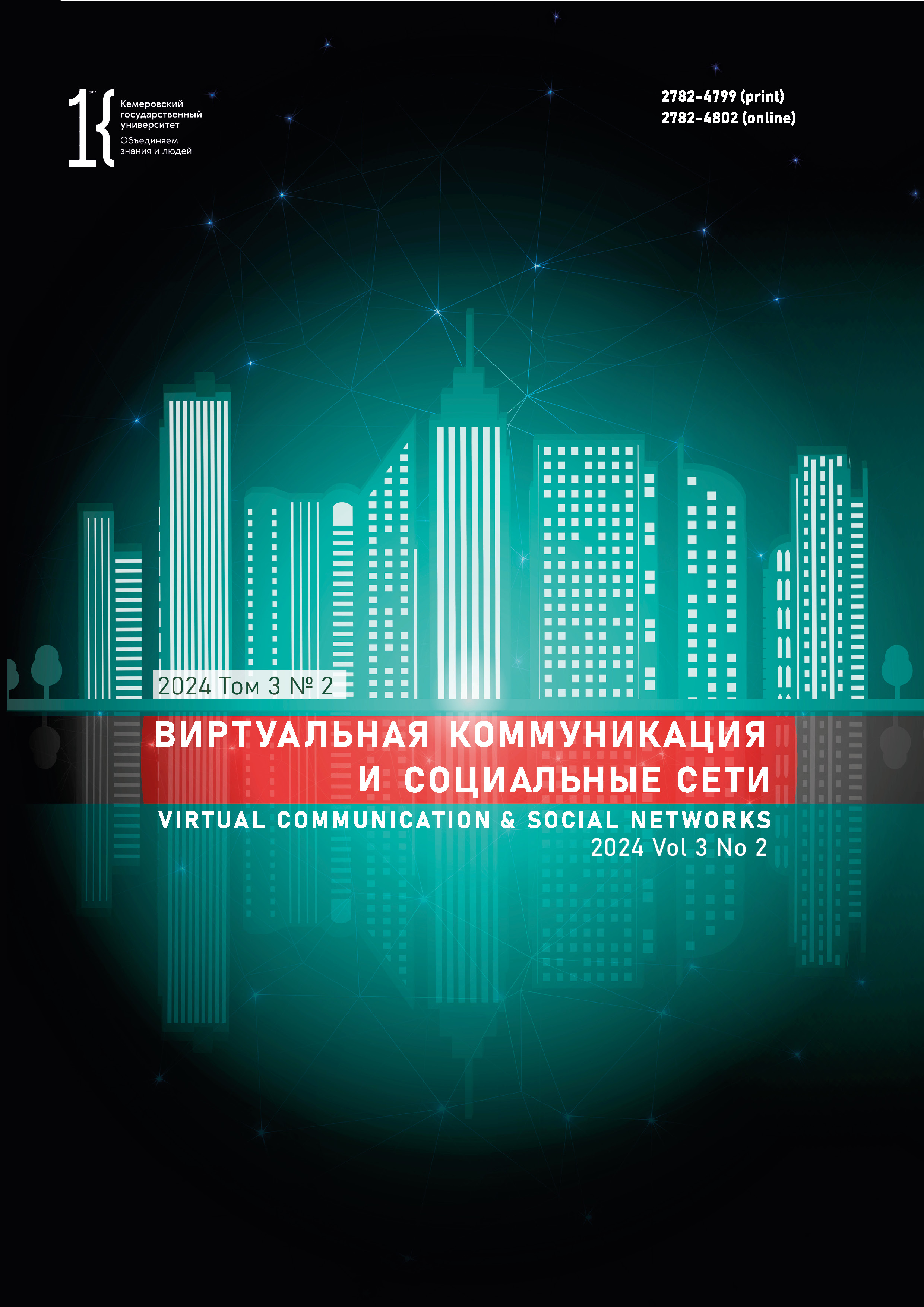Kemerovo, Russian Federation
Kemerovo, Russian Federation
Digital communication has become an integral part of social reality to a degree that it prevails in some social contexts, e.g., in academic communication between university students and professors. This research featured violations of netiquette rules by university students and their effect on the effectiveness of virtual academic communication. The article introduces a comprehensive review of domestic and foreign publications on virtual communication and digital etiquette. A survey that involved teaching staff affiliated with higher educational institutions in Kemerovo made it possible to formulate the rules of virtual academic netiquette between university students and professors. The authors identified, quantified, and classified violations of these rules, as well as described the response and attitude of professors to such violations. Although all respondents experienced violations of virtual communication, they believe that local students possess a rather high level of communicative culture. In most cases, poor netiquette did not affect the attitude of teachers towards the violators and caused no strong negative reactions. However, some professors admitted that poor netiquette sometimes caused biased attitude and discomfort on their side in dealing with particular students. Gender, age, or job had no effect on the attitude of professors to students who break the rules of virtual academic etiquette. In general, poor academic netiquette had some negative impact on the effectiveness of communication between professors and university students.
communication, communicative behavior, virtual space, business netiquette, higher education
1. Gaidukova I. B. Ethical problems of Internet communication. Russian science and education today: Problems and perspectives, 2015, (4): 13–16. (In Russ.) https://www.elibrary.ru/vcvuaz
2. Golev N. D. Cognitive and communicative axiology of modern virtual pedagogical communication: Notes for discussion. Virtual Communication and Social Networks, 2023, 2(4): 204–214. (In Russ.) https://doi.org/10.21603/2782-4799-2023-2-4-204-214
3. Zubok Yu. A., Chankova E. V. Communicative competence of the personality in the space of virtual reality. Research Result. Sociology and Management, 5(4): 139–150. (In Russ.) https://doi.org/10.18413/2408-9338-2019-5-4-0-12
4. Irkova A. V. Virtual communication as the main format of social communication of young people. Virtual Communication and Social Networks, 2022, 1(4): 208–214. (In Russ.) https://doi.org/10.21603/2782-4799-2022-1-4-208-214
5. Kozyakova M. I. Etiquette as cultural phenomenon. Kultura kultury, 2016, (4): 11. (In Russ.) https://www.elibrary.ru/wwxelh
6. Kosorukova A. A. The ethics of messengers: Issues of epistolary communication within the framework of development of information technologies. Humanitarian Bulletin, 2018, (9). (In Russ.) https://doi.org/10.18698/2306-8477-2018-9-551
7. Kochkareva I. V. Acquaintance with digital etiquette: Email correspondence for distance learning. Development of education, 2021, 4(1): 47–50. (In Russ.) https://doi.org/10.31483/r-97473
8. Lebedeva N. B. Social networks and the regulatory function of language: Internet debates on virtual verbal intelligence. Virtual Communication and Social Networks, 2023, 2(3): 144–153. (In Russ.) https://doi.org/10.21603/2782-4799-2023-2-3-144-153
9. Lipatova M. E. Digital Ethics in the Space of Higher School. Transformation of ethical matrix in digital era: Proc. Sci. Online Conf., Moscow, 1 Mar 2022. Moscow: MAKS Press, 2022, 90–98. (In Russ.) https://www.elibrary.ru/oqlcau
10. Mamina R. I., Piraynen E. V. Digital business etiquette in the distance format of higher education. Studia Humanitatis Borealis, 2020, (4): 15–20. (In Russ.) https://doi.org/10.15393/j12.art.2020.3662
11. Okushova G. A. Digital etiquette and regulations in the communicative order of the social network space. Society: Sociology, Psychology, Pedagogics, 2021, (1): 24–27. (In Russ.) https://doi.org/10.24158/spp.2021.1.3
12. Panisheva O. V., Loginov A. V. Development of digital etiquette skills in Students of Pedagogical Universities. Informatics and Education, 2022, 37(1): 8–15. (In Russ.) https://doi.org/10.32517/0234-0453-2022-37-1-8-15
13. Petruneva R. M., Vasilyeva V. D., Petruneva Ju. V. Digital students: Myths and reality. Higher Education in Russia, 2019, 28(11): 47–55. (In Russ.) https://doi.org/10.31992/0869-3617-2019-28-11-47-55
14. Pfettser A. A. Developing media competence in university students in the conditions of digitalization. Virtual Communication and Social Networks, 2022, 1(1): 49–54. (In Russ.) https://www.elibrary.ru/lcrdgg
15. Romanov D. K., Dauksha L. M. Psychological aspects of perception and understanding of teachers by university students. Integration of Education, 2016, 20(2): 228–237. (In Russ.) https://doi.org/10.15507/1991-9468.083.020.201602.228-237
16. Ryabova M. Yu. Virtual communication etiquette and its features. Virtual Communication and Social Networks, 2023, 2(4): 239–245. (In Russ.) https://doi.org/10.21603/2782-4799-2023-2-4-239-245
17. Safonova N. A. Didital ethics as a part of professional ethics and office label. Innovative Aspects of Science and Technics Development, 2020, (3): 163–166. (In Russ.)
18. Montag C., Diefenbach S. Towards homo digitalis: Important research issues for psychology and the neurosciences at the dawn of the internet of things and the digital society. Sustainability, 2018, 10(2): 415–436. https://doi.org/10.3390/su10020415















